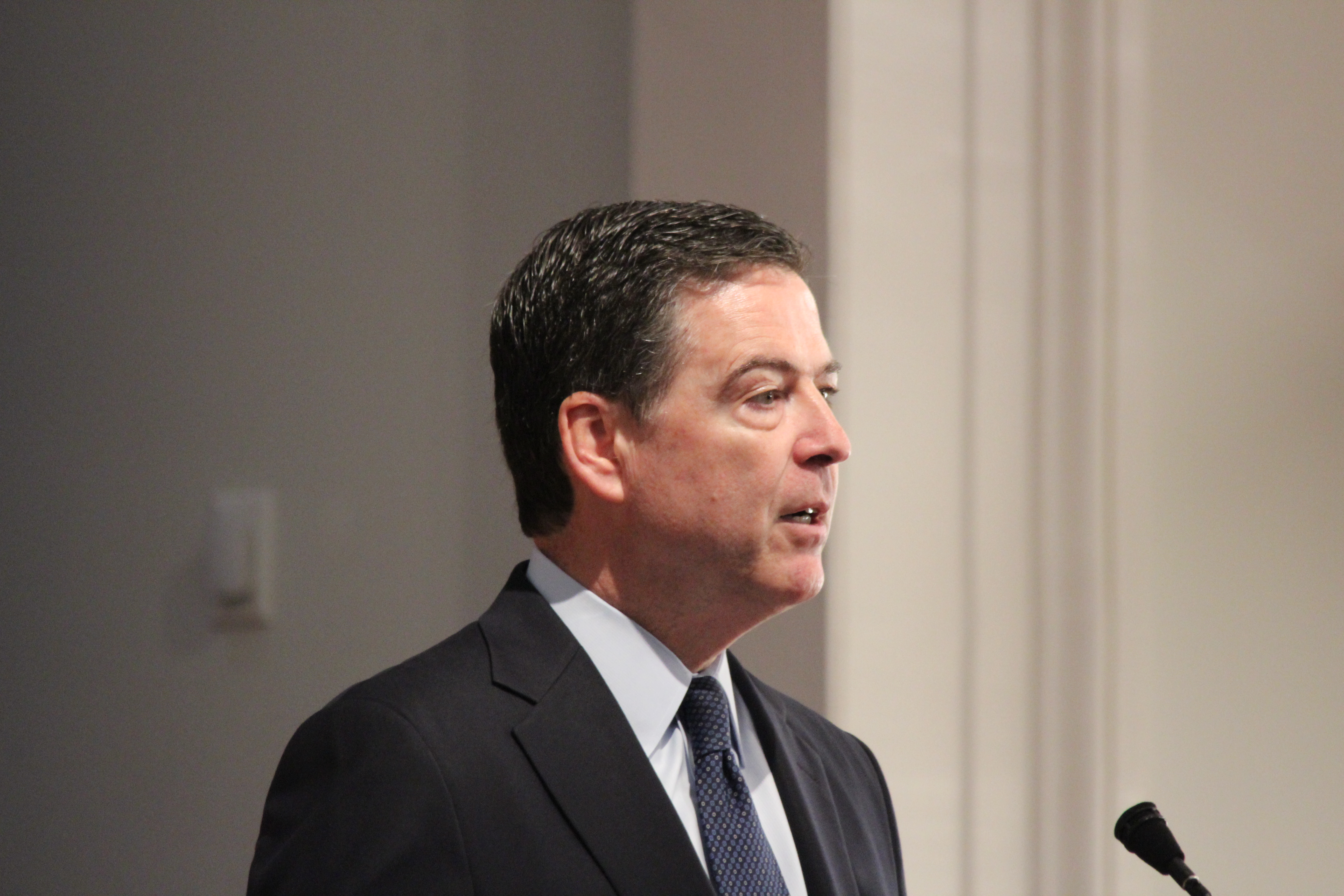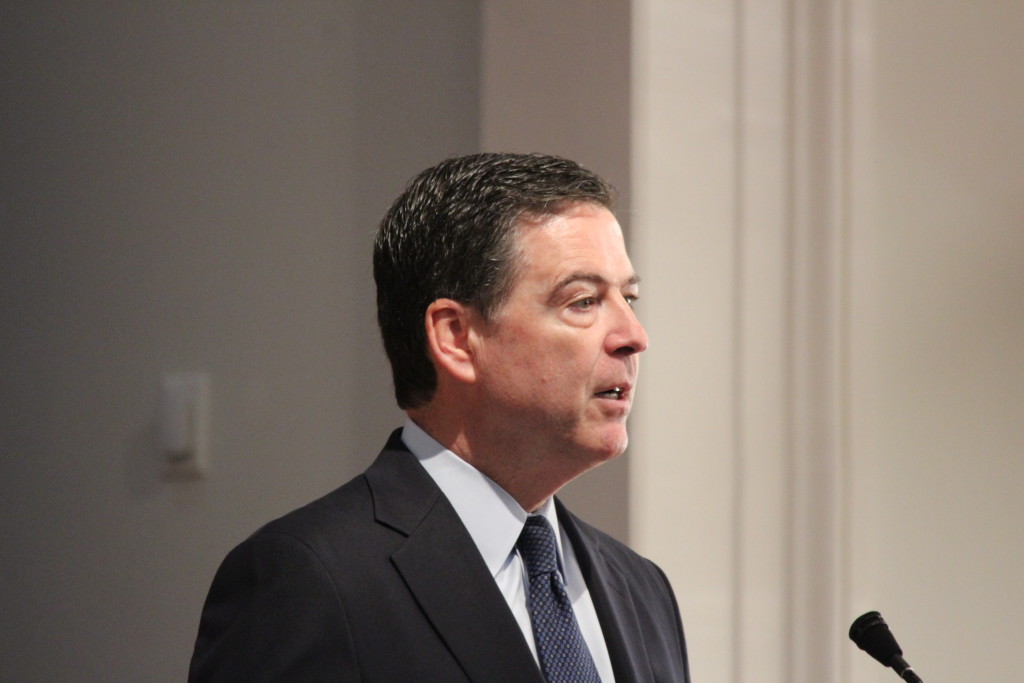
Ariel Worthy
The Birmingham Times

On FBI Director James B. Comey’s desk sits a single piece of paper from October 1963.
The paper is a memo from first director of the agency J. Edgar Hoover written to then Attorney General Robert Kennedy.
“The memo asks for permission to [wiretap] Dr. [Martin Luther] King,” Comey said Wednesday during a discussion about law enforcement and race at Sixteenth Street Baptist Church in downtown Birmingham.
“It’s utterly deploring… there is no date limitation, there is no geographic limitation. Dr. Hoover signs the request and Robert Kennedy signs the approval, and it was done,” Comey said.
Comey said the FBI has to find a way to diversify itself to better reflect the communities it serves. He said the agency is 83 percent white.
He talked about the complicated relationship between police and the community and shared four hard truths that he said everyone needs to understand.
Law enforcement must see themselves clearly.
“We need to understand our history, much of which is not pretty,” Comey said. “The truth is that in the history of law enforcement in the United States, we were often the enforcers of the status quo, which was rough on a lot of folks, especially minority communities.”
Research points to the existence of unconscious bias in nearly everyone.
“We all carry various biases around us, and we react differently to a face that looks different than our own,” Comey said. “We have to stare at that and own that, because biology is not destiny; it’s what we do next after some reflexive reaction that makes all the difference.”
Understanding those in law enforcement are also at risk.
“Police often work in environments where disproportionate [percentage] of street crime is committed by young men of color,” Comey said. “After years of police work officers sometimes cannot help a certain cynicism creeping into their life shaped by their experiences.”
The problems faced are greater than the divide between the law enforcement and the community they serve.
“We in law enforcement have a whole lot to improve on, but the truth is the cops are not the root cause of our problems,” Comey said. “The problems are so complicated and difficult because the problems are about education, employment, opportunities, community, safe streets, and drug treatment, families and role models.”
Comey told the audience that President Barack Obama, after he leaves office, plans to dedicate his time to the My Brother’s Keeper Initiative. The program helps many young minority boys find opportunities that may not otherwise be presented to them.
It’s important for law enforcement to not only understand, but feel the life experience of the people they encounter in the communities they work, according to Comey.
Just like police need to feel how people in the community feel, he said it is also important for residents to understand the officer’s perspective as well.
“People need to see what police officers see through the windshields of their cars,” he said. “Imagine what they feel as they approach a car with tinted windows as they respond to a late night stop.”



